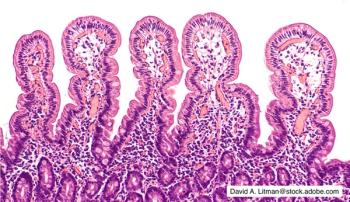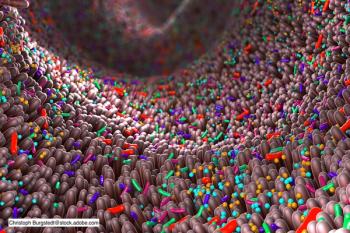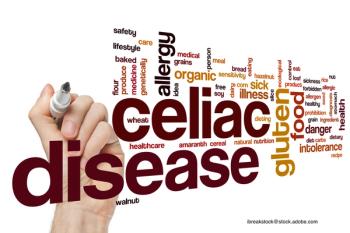
Since the middle of the 20th century and into the 21st century, the incidence of celiac disease has been rising significantly throughout the Western world. Here is what you need to know about this autoimmune condition.

Since the middle of the 20th century and into the 21st century, the incidence of celiac disease has been rising significantly throughout the Western world. Here is what you need to know about this autoimmune condition.

Diet is impacted by more than just what a child sees in the home. An investigation examines the dietary quality seen in popular movies.

Encourage parents to model healthful eating behaviors and positive relationships with good eating habits.

It’s a classic case of “which came first,” specific bacteria in the intestinal microbiota or celiac disease. A new report offers insight.

Native Americans are disproportionately impacted by early childhood obesity. Can home visits help turn the tide?

A close look at the dietary needs of infants and toddlers and the recent nutrition guideline update.

Colic is a common complaint among infants. A study examines whether prenatal exposure to probiotics can reduce the risk of colic.

A new report investigates how grocery shopping frequency impacts diet quality.

Access is a problem when it comes to Special Supplemental Program for Women, Infants, and Children (WIC) participation, with many low-income families living in food deserts where WIC-approved goods are hard to find.

Breastfeeding has a number of positive influences on a child. Is reducing infections one them?

When treating patients with anorexia nervosa and malnourishment, the current standard of care involves starting with low calories and then advancing with caution. A new investigation examines whether a higher calorie refeeding protocol could be more beneficial to patients with no increase in adverse events.

New research investigates just how much influence parents have on their child’s diet and how they can change it.

Body mass index measurements don’t take into account the variations to body type by race or ethnicity. A new tool might fix that problem.

A series of new reports backs earlier evidence that exposure to allergenic foods at a young age can help prevent the development of food allergies later on.

For the first time since it was first published in 1980, the Dietary Guidelines will include recommendations for children up to age 2 years and includes information on preventing food allergies.

Eating may become disordered for some pediatric patients. A presentation at the virtual 2020 American Academy of Pediatrics National Conference & Exhibition gives guidance on how to identify and manage eating disorders in pediatrics.

Early introduction of allergenic foods has been shown to help reduce the risk of allergy development, but can it do the same for celiac disease?

Recent years have illustrated how much the gut microbiome impacts health. A new report discusses what it can tell us about very preterm newborns’ outcomes.

A recent report reveals just how much sugar infants and toddlers are eating—and it’s not pretty.

A recent study investigates how fun stories and engaging playtime can help increase vegetable intake among preschoolers.

Even though they may be too old to participate in Special Supplemental Nutrition Program for Women, Infants and Children (WIC), a new study shows that the program can help older kids eat better, too.

For low-income families, securing an adequate supply of nutritious foods can be a challenge. There are public programs to help supplement grocery budgets, such as the Supplemental Nutrition Assistance Program (SNAP) but do these help needy families improve their overall nutrition?

Parents and caregivers of children with feeding disorders face lot of hurdles. Pediatricians can help by providing family-centered holistic, well-rounded care that takes both medical and social issues into consideration.

Children who are eligible in Special Supplemental Nutrition Program for Women, Infants, and Children (WIC) and stay enrolled at least until age 2 years fare better than children who leave the program early, despite still being eligible.

Eating disorders can be devastating and could lead to damage or even death. Can digital cognitive behavior therapy help?